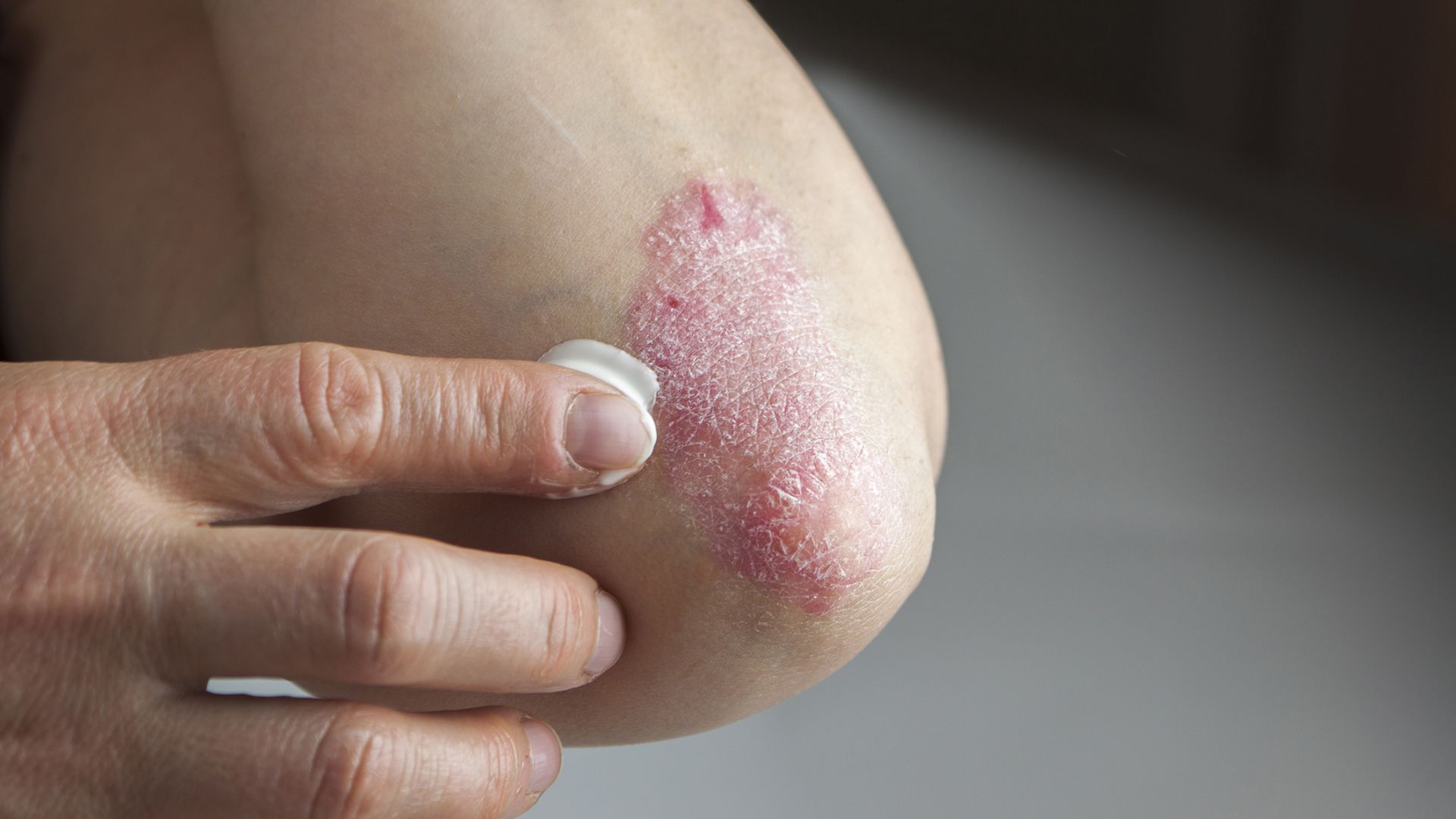Meditation can be a good habit for anyone. There is a body of research that shows meditation can have numerous benefits to both physical and mental health—reduced stress, better sleep, lower blood pressure, and many others. For people living with a health condition, meditation can be a useful addition to a management plan. Here, we look at some of the reasons that people with psoriasis may want to consider practicing meditation.
What is psoriasis?
Psoriasis is a chronic inflammatory skin disorder. When a person has psoriasis, abnormal immune system activity speeds up the growth of skin cells. This can result in different types of skin lesions, the most common being thickened patches of skin that have a red, silvery, scaled appearance (this is known as plaque psoriasis). But lesions can differ depending on the type of psoriasis a person has and where lesions appear on the body.
What is meditation?
Meditation is actually a pretty broad term. There are many different styles of meditation. The majority share some common elements. Meditation is ideally practiced in a relaxed setting where distractions are minimal. It emphasizes a connection with the body, which can be achieved by remaining in a relaxed position (such as sitting or lying down) or through movement (such as tai chi, yoga, or walking meditation). It involves focusing attention—on the breath, on a visualization, on a repeated phrase.
One of the most popular forms of meditation in modern times is mindfulness meditation. Mindfulness meditation originates from a meditation program called mindfulness-based stress reduction (MBSR). As the name implies, this program was developed for stress management. It has been well-studied as a therapy for people living with a variety of chronic health conditions. Mindfulness meditation is available through meditation apps and yoga studios.
Meditation and psoriasis
While meditation may benefit people with psoriasis, it’s important to remember that meditation is not a substitute for treatment. Anyone living with psoriasis should be working with a dermatologist who has experience treating inflammatory skin conditions.
That said, here are some of the ways that meditation may help psoriasis management:
- Reduce stress. Stress can increase inflammation and is a potential trigger for psoriasis flares. Stress is also bad for physical and mental health in general. Some research suggests that meditation may reduce inflammation as a result of reducing stress.
- Immune system activity. Early research suggests meditation may also help regulate immune system activity. Psoriasis is sometimes described as an “immune-mediated” disease because it begins when the immune system behaves in an abnormal way.
- Coping strategies. Living with a chronic condition like psoriasis comes with many challenges. By improving things like patience, self-awareness, and perspective, meditation can help you better cope with the demands of managing psoriasis.
- Quality of life. Quality of life is another major focus of managing psoriasis and is one of the major factors considered when determining the severity of psoriasis. By improving things like concentration and sleep—and helping reduce things like negative emotions and social distress—meditation may help improve quality of life.
If you are managing psoriasis, there’s little risk in trying meditation (though some people who meditate do report experiencing negative thoughts or emotions). Meditation is free to try and only requires a small time commitment—and you can get started right now with our 8 Minute Meditation for Psoriasis.






